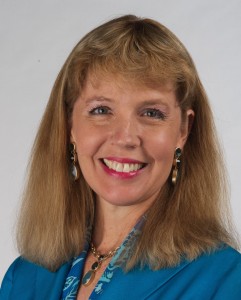The Plank Center is committed to developing the next generation of leaders and advancing the profession. It is our honor to recognize six leaders whose commitment to mentoring generates a powerhouse of influence and accelerates success in our profession.
Our question and answer series introduces the Milestones in Mentoring award recipients.
 Meet Dr. Linda Hon
Meet Dr. Linda Hon
Dr. Linda Hon is a professor in the Department of Public Relations and Program Director for the Public Relations and Social Advocacy Project in the Center for Media Innovation + Research. The Project is dedicated to exploring collaborative communication solutions to social issues, particularly using digital activism.
Describe your role as a mentor.
In my role as a professor, I get to work with a variety of students. I teach undergraduate students, and they often come to me for advice and help with class issues or guidance about internships and careers. A lot of my time is also spent mentoring graduate students. We develop research projects together and write up the results for presentations and conferences. Classroom teaching is fun, but I especially enjoy working closely with students as their research adviser. They have great ideas and a lot of passion.
What is your biggest mentoring challenge?
Letting them figure out things on their own rather than being too directive. You have to constantly try to find the right balance.
What is your advice for mentees (young professionals, students, etc.)?
Don’t feel you have to go it alone. Reach out to people. Ask for advice. I have found that the most accomplished people are often very humble, so try not to be intimidated.
What is the key to a successful mentor/mentee relationship?
I think there has to be some personal chemistry. My mentees and I tend to be passionate about many of the same things. I am working on research projects with several students about how digital activism is affecting social issues. We all care about social justice and empowering people to create a better world.
What inspires or motivates you to be a mentor?
I have always loved teaching. My parents were educators and I really can’t imagine doing anything else. I used to line up all of my dolls and stuffed animals in my bedroom and “hold class.” Ironically, though, I never thought about being a college professor until my undergraduate adviser, Professor John Schorr, at Stetson University, told me I should. I am so grateful for the confidence he had in me.
What advice did you receive from your own mentor that you will always pass along to others and why?
My dissertation adviser, Lauri Grunig, professor emerita at the University of Maryland, was an incredible mentor and role model to me. I can’t even begin to explain all of the things she taught me through advice and the power of example. One of my favorite memories is a story she told me about a student who was going to clear her desk and finish her Ph.D. dissertation in a month. She told the student that the problem with that scenario is that her committee members would not do the same. The lesson was, “Your priorities are never anyone else’s.” Hardly a day goes by that I don’t find myself needing to remember this. I have passed on this advice to many students.
What is one powerful thing you’ve learned from a mentee?
Tenacity and grace. One of my doctoral advisees, Professor Eyun-Jung Ki at University of Alabama, was amazing in this regard. Before being published, a research article has to go through peer review. Typically, the reviewers suggest a long list of revisions, some of which may be conflicting. It’s very easy to feel overwhelmed and defensive. Dr. Ki and I have published several articles together, and I was amazed at her ability to tackle revisions with a calm determination that is unmatched by anyone with whom I have worked.
What are some practical pieces of advice you can offer someone who is seeking a mentor?
Don’t be afraid to ask. Schedule a meeting or a phone call. I think most people really enjoy helping others and reaping the benefits that come from being a mentor. I learn so much from my students, and their strong work ethic is an inspiration to me.
How do you describe your personal mentoring style?
I think we mentor as we were mentored. When I was a doctoral student, in addition to working with Lauri Grunig, I also worked with Professor Emeritus James Grunig, also at the University of Maryland. They always treated me like a peer and were enormously kind and generous to me both professionally and personally. I absolutely don’t live up to the ideal they modeled, but I try to be kind and respectful toward my students. And, my students are my priority. I answer their email before anyone else’s.
Has your mentoring style changed over the years?
Yes, I am now old enough to be my students’ mother. It’s the best time in my life for mentoring. I have more experience and hopefully more wisdom to share with them. And, I hope I am more patient and better at saying, “I don’t know” or “I was wrong.”
Published: September 27, 2017
More from Dr. Linda Hon: